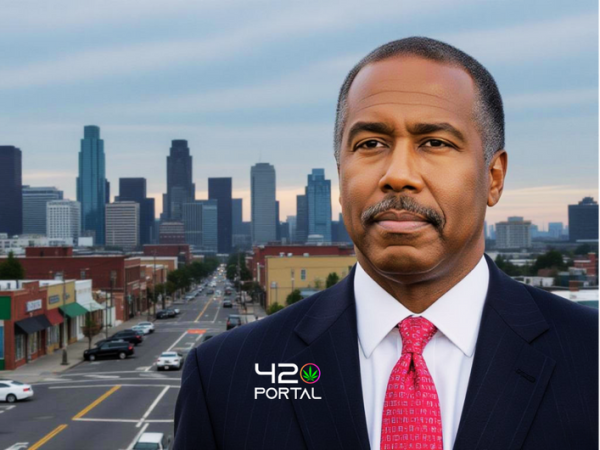Fewer Marijuana Restrictions Could Worsen Urban Crises, Ben Carson Warns

09/05/2025
In an Op-Ed published on Fox News, former Housing and Urban Development Secretary and renowned pediatric neurosurgeon Ben Carson argues that easing restrictions on marijuana could exacerbate problems in American cities. Drawing from his medical expertise and observations of substance abuse's toll on families, Carson urges policymakers to reconsider moves to reschedule marijuana as a less dangerous substance, warning that such changes, often pushed by activists, may lead to unintended harm.
Carson begins by tying the issue to broader efforts to combat urban crime epidemics, emphasizing how increased marijuana availability contributes to societal decay. As a doctor who has witnessed the devastating effects of drug use firsthand, he stresses the need for evidence-based policies that protect future generations rather than experimenting with liberalization.
A central pillar of his argument focuses on the link between marijuana dispensaries and rising crime rates. He cites research from the University of Colorado showing neighborhoods with dispensaries experiencing crime rates up to 1,452% higher than those without. In Denver, for instance, areas near dispensaries see about 85 more property crimes annually. Carson references comprehensive reviews of states with legalized marijuana, noting post-legalization spikes in substance-use disorders by 17%, chronic homelessness by 35%, overall arrests by 13%, violent crime arrests by 18%, and property crime by 15%. He also highlights studies indicating that young men addicted to daily marijuana use are 82% more likely to engage in violent behavior compared to non-users.
Beyond crime, Carson addresses health concerns, pointing out that today's marijuana is far more potent, with THC levels reaching up to 99%—a stark contrast to the 2-3% concentrations of past decades. This potency, he implies, amplifies risks to public health and community stability.
Economically, Carson warns that legalization enables organized crime, including Chinese cartels, to thrive based on investigative reports. He points to Oregon as a cautionary tale, where broad legalization prompted such severe issues that the state later recriminalized drug possession.
Carson calls for responsible leadership that prioritizes family health, safety, and community thriving over compassionate but misguided policies. He argues that unchecked drug use fuels crime and suffering, advocating caution to avoid deepening urban woes. His Op-Ed serves as a sobering reminder that good intentions in drug policy must be balanced with real-world consequences.
Reference
Carson begins by tying the issue to broader efforts to combat urban crime epidemics, emphasizing how increased marijuana availability contributes to societal decay. As a doctor who has witnessed the devastating effects of drug use firsthand, he stresses the need for evidence-based policies that protect future generations rather than experimenting with liberalization.
A central pillar of his argument focuses on the link between marijuana dispensaries and rising crime rates. He cites research from the University of Colorado showing neighborhoods with dispensaries experiencing crime rates up to 1,452% higher than those without. In Denver, for instance, areas near dispensaries see about 85 more property crimes annually. Carson references comprehensive reviews of states with legalized marijuana, noting post-legalization spikes in substance-use disorders by 17%, chronic homelessness by 35%, overall arrests by 13%, violent crime arrests by 18%, and property crime by 15%. He also highlights studies indicating that young men addicted to daily marijuana use are 82% more likely to engage in violent behavior compared to non-users.
Beyond crime, Carson addresses health concerns, pointing out that today's marijuana is far more potent, with THC levels reaching up to 99%—a stark contrast to the 2-3% concentrations of past decades. This potency, he implies, amplifies risks to public health and community stability.
Economically, Carson warns that legalization enables organized crime, including Chinese cartels, to thrive based on investigative reports. He points to Oregon as a cautionary tale, where broad legalization prompted such severe issues that the state later recriminalized drug possession.
Carson calls for responsible leadership that prioritizes family health, safety, and community thriving over compassionate but misguided policies. He argues that unchecked drug use fuels crime and suffering, advocating caution to avoid deepening urban woes. His Op-Ed serves as a sobering reminder that good intentions in drug policy must be balanced with real-world consequences.
Reference







